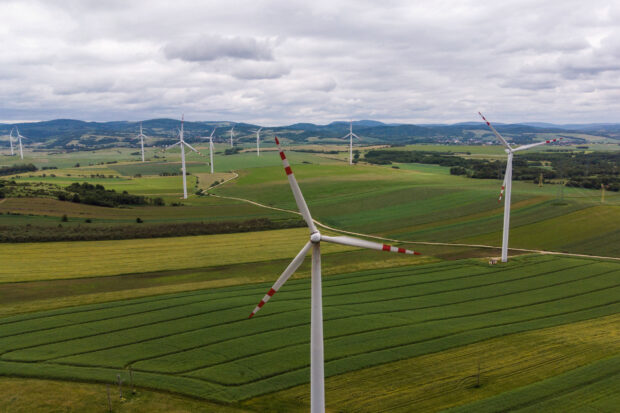Major brands, including IKEA’s investment arm, are following the lead of automakers by acquiring stakes in suppliers of raw materials and energy. This move allows them to have more control over their production processes in order to meet emissions targets and reduce disruptions. In response to the challenges faced by global supply chains during the coronavirus pandemic and conflicts such as the one in Ukraine, companies across various industries are embracing vertical integration and investing in renewable energy, metals, agricultural products, and more.
According to data from market intelligence platform Climate Tech VC, companies have spent over $4 billion in the past six months to invest in their supply chains in industries such as food, batteries, chemicals, autos, mining, and waste and recycling. As global supply networks recover from the pandemic, stronger environmental standards are further motivating companies to invest in new technologies that reduce emissions for themselves and their suppliers.
Andreas Follér, the head of sustainability at truck maker Scania, spoke about the industry’s rapid transition and the company’s commitment to supporting innovators in their supply chain. Follér explained that Scania plans to source green materials and technologies for battery, steel, aluminum, and cast iron by 2030.
Reducing dependence on China and Russia is also a driving factor behind these investments, even though they may involve significant risks and costs. The fragility of supply chains became evident in recent years, leading companies to adopt vertical integration strategies to minimize disruptions.
Export controls imposed by China, such as the upcoming restrictions on gallium and germanium used in the semiconductor and defense industries, have caught end-users off guard. Companies fear that China, being the largest producer of many raw materials, may implement further restrictions. This concern has prompted retailers and other sectors to invest in key aspects of production.
The automotive industry, in particular, is under pressure to transition to electric vehicles quickly. Automakers like GM and Stellantis are investing in mines for metals such as lithium, copper, and nickel. Even the retail sector, like the investment arm of IKEA’s owner, is exploring decarbonization investments. The IMAS Foundation has spent over 1 billion euros on decarbonization assets and strategies, including stakes in steelmaker H2 Green Steel and battery manufacturer Northvolt. The foundation is open to further investments in steel, construction, and green aluminum produced with renewable energy or recycled materials.
Companies in the aviation industry are also investing in fuel production due to concerns about the insufficient supply of biofuels. United Airlines has invested in an algae-based fuel producer, while Jet2 and Wizz Air have invested in plants that convert waste into fuel.
Auditors and lawyers who assist companies with these transactions caution that supply chain investments come with inherent risks. Commodity markets are cyclical, and investments in suppliers may only serve as temporary solutions to resolve bottlenecks and improve environmental credentials. Furthermore, as the market saturates, companies may face pressure from shareholders to divest from these investments.
In summary, major brands are investing in their supply chains to gain more control over production processes and meet emissions targets. These investments aim to reduce disruptions and ensure a secure supply of raw materials and energy. However, companies must navigate risks associated with commodity market cycles and consider the long-term viability of their investments.
Denial of responsibility! SamacharCentrl is an automatic aggregator of Global media. In each content, the hyperlink to the primary source is specified. All trademarks belong to their rightful owners, and all materials to their authors. For any complaint, please reach us at – [email protected]. We will take necessary action within 24 hours.

Omprakash Tiwary is a business writer who delves into the intricacies of the corporate world. With a focus on finance and economic landscape. He offers readers valuable insights into market trends, entrepreneurship, and economic developments.


